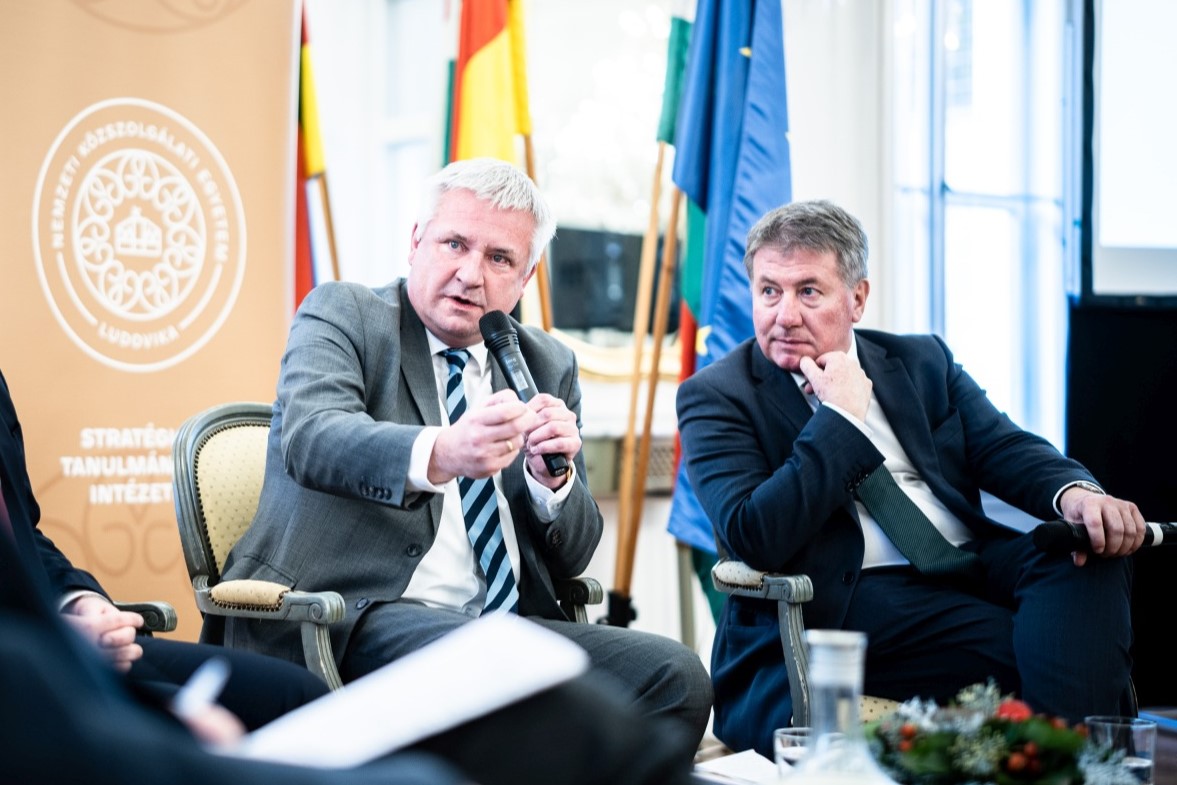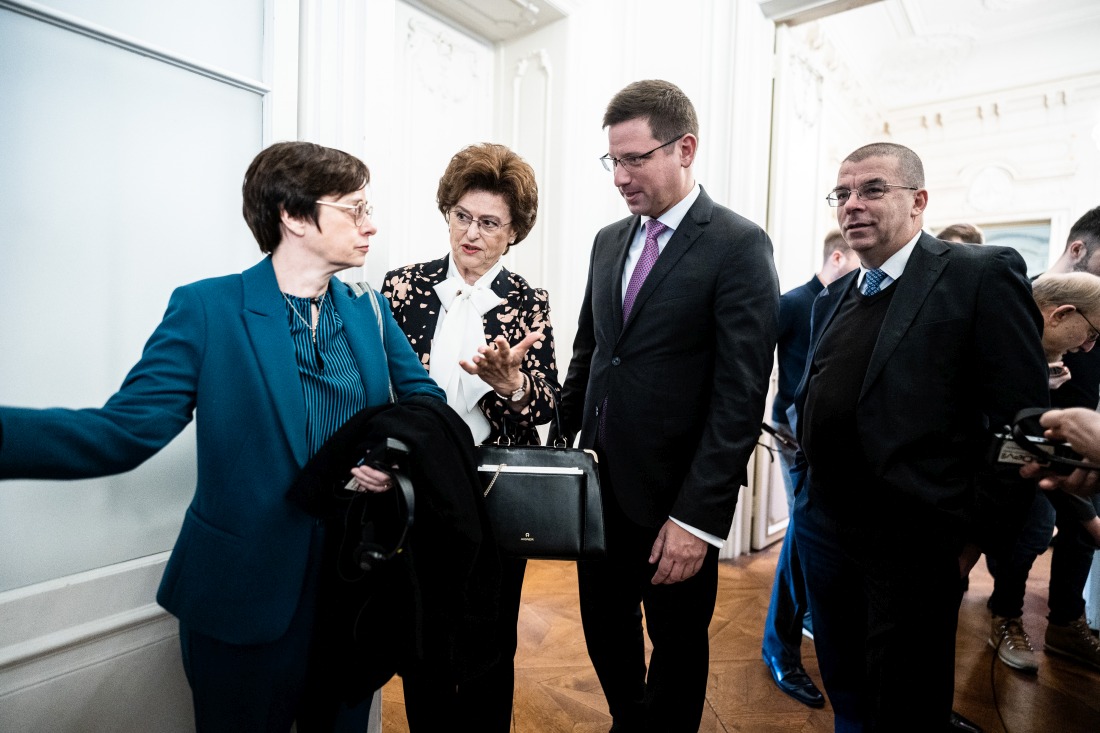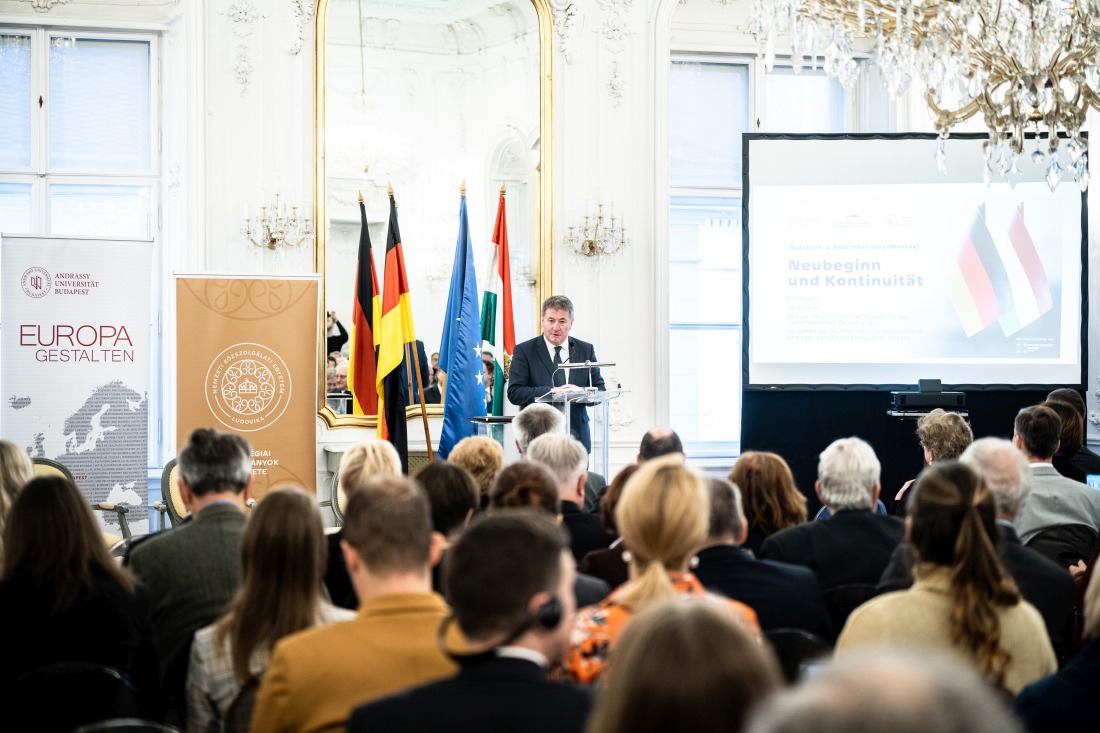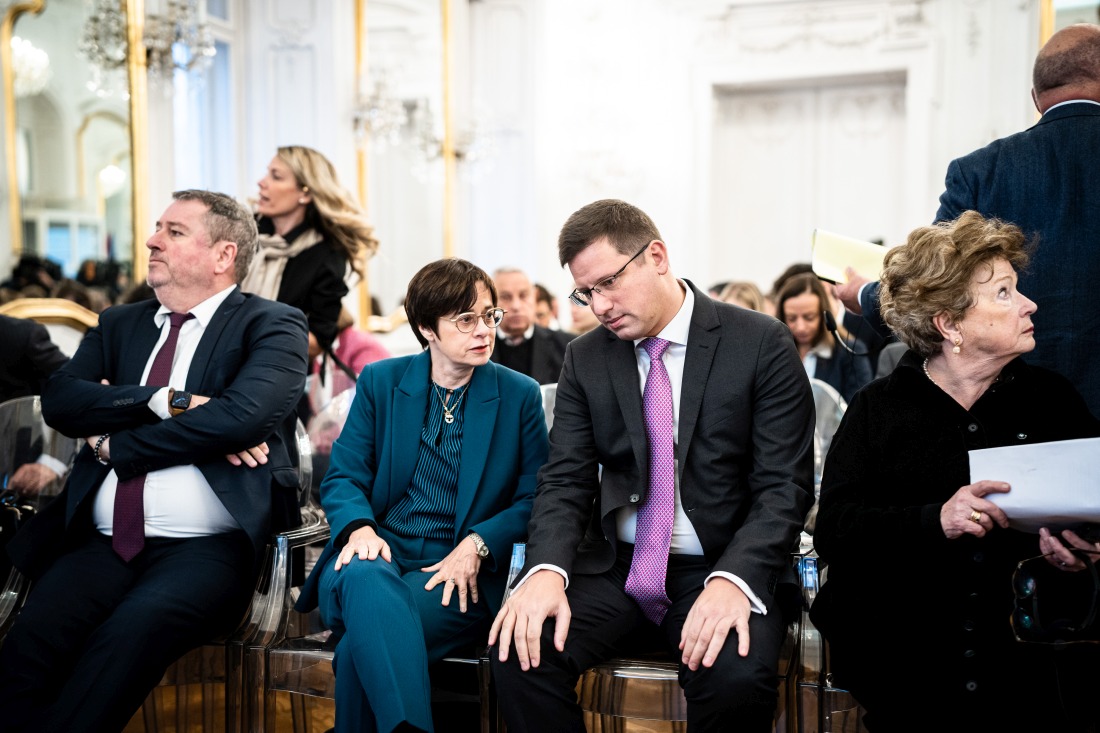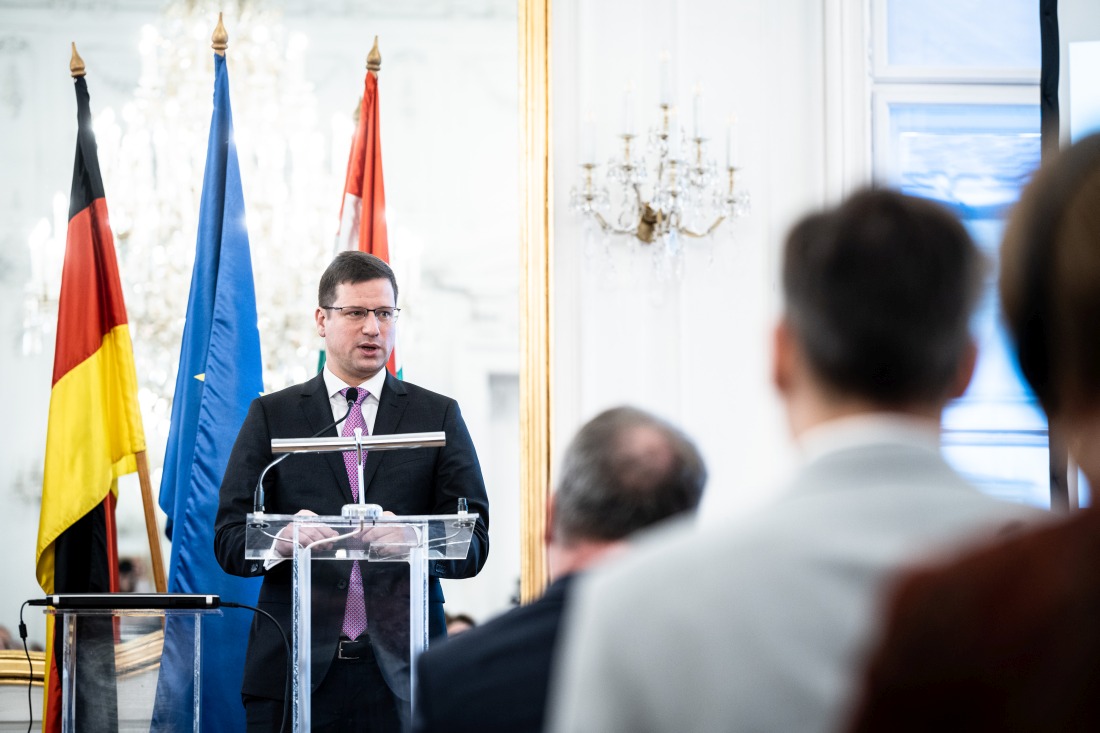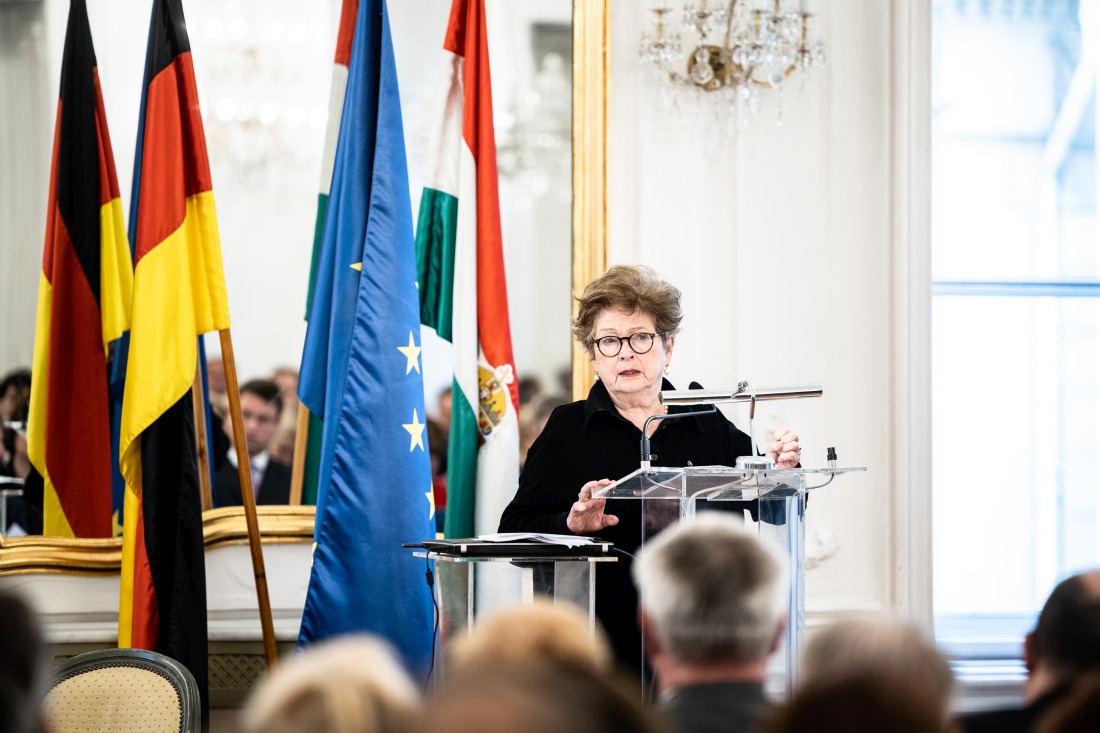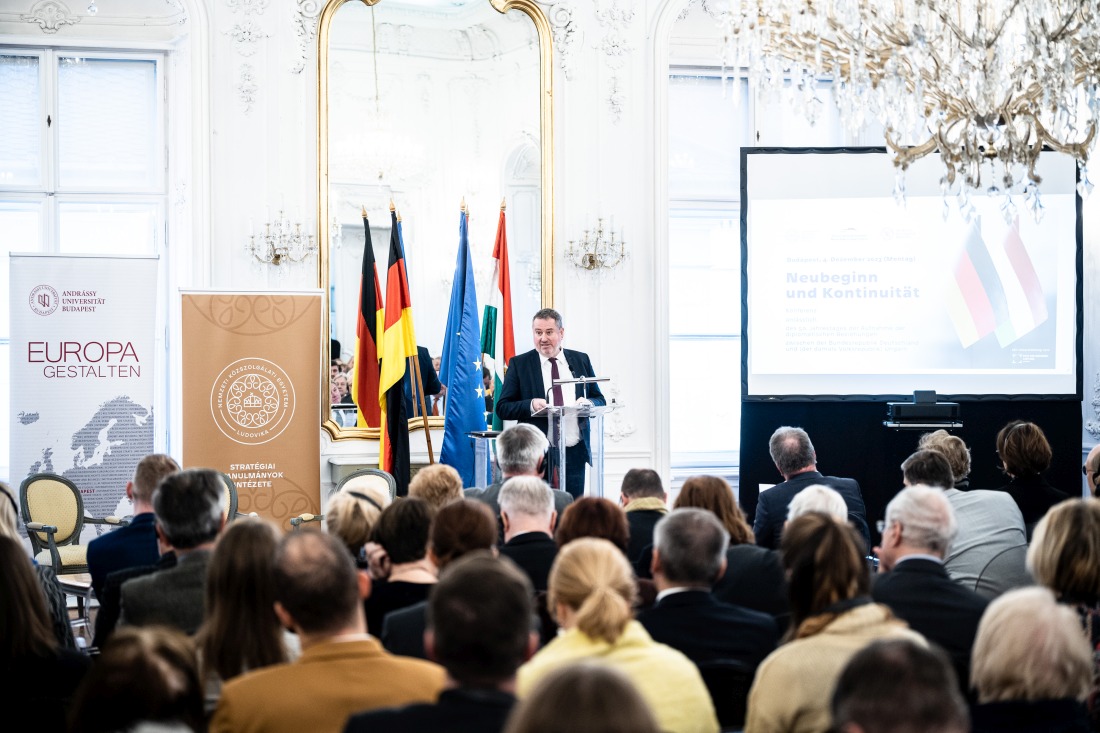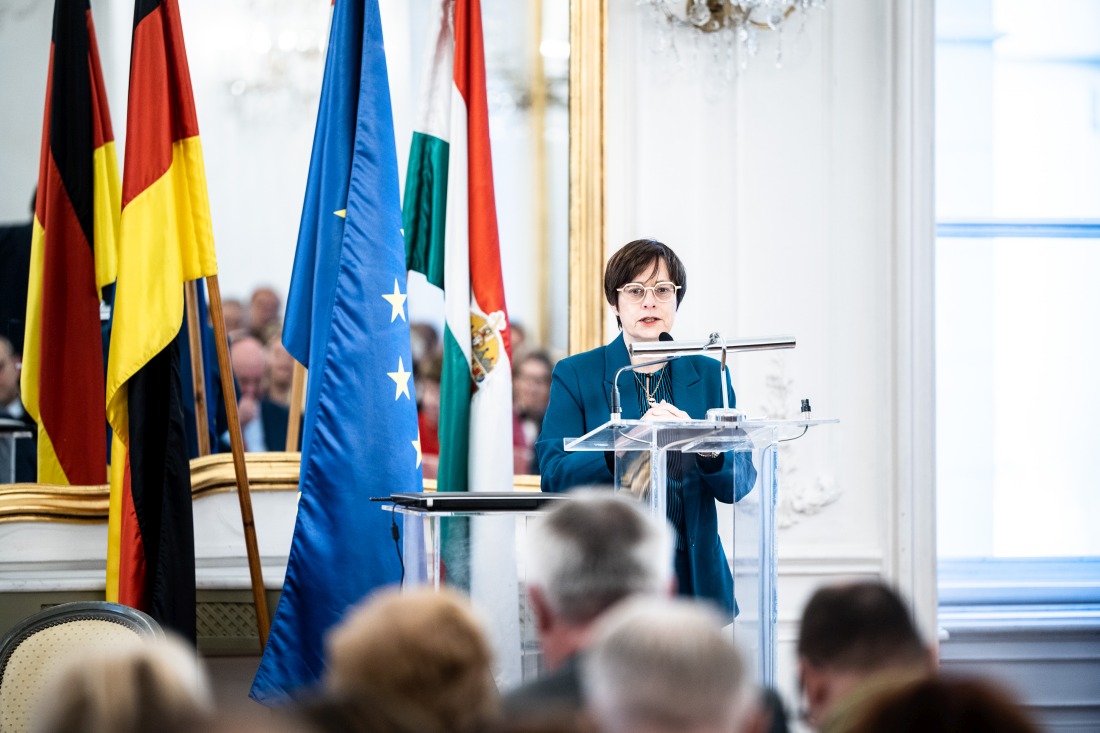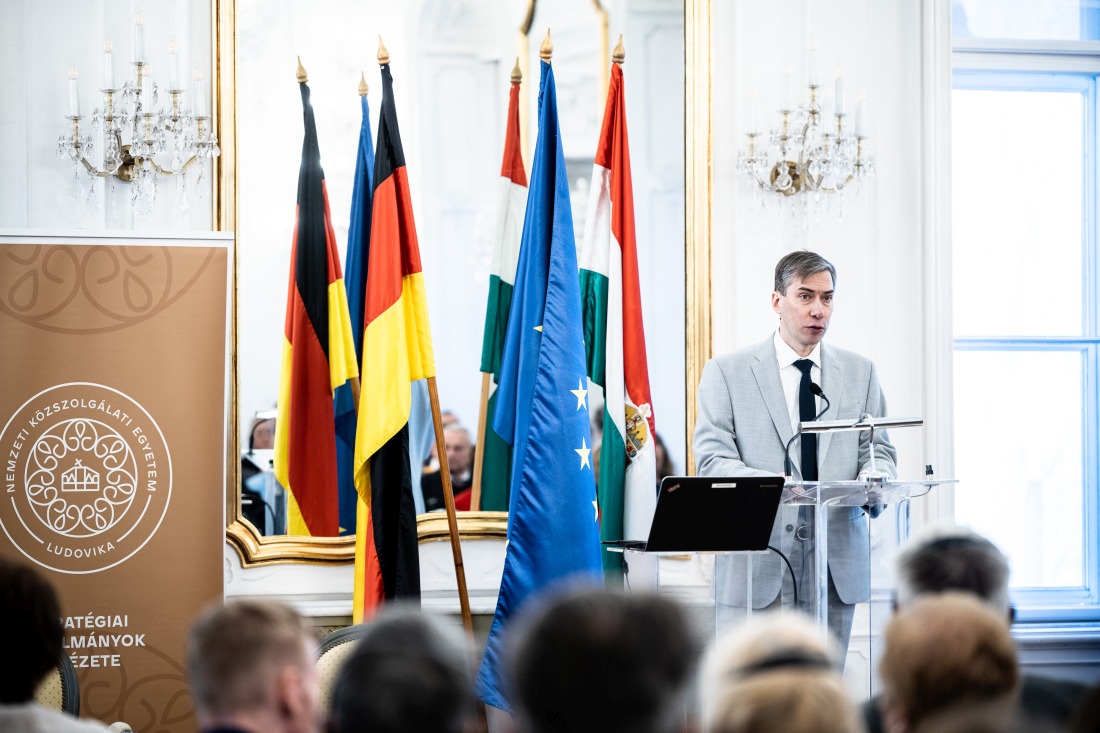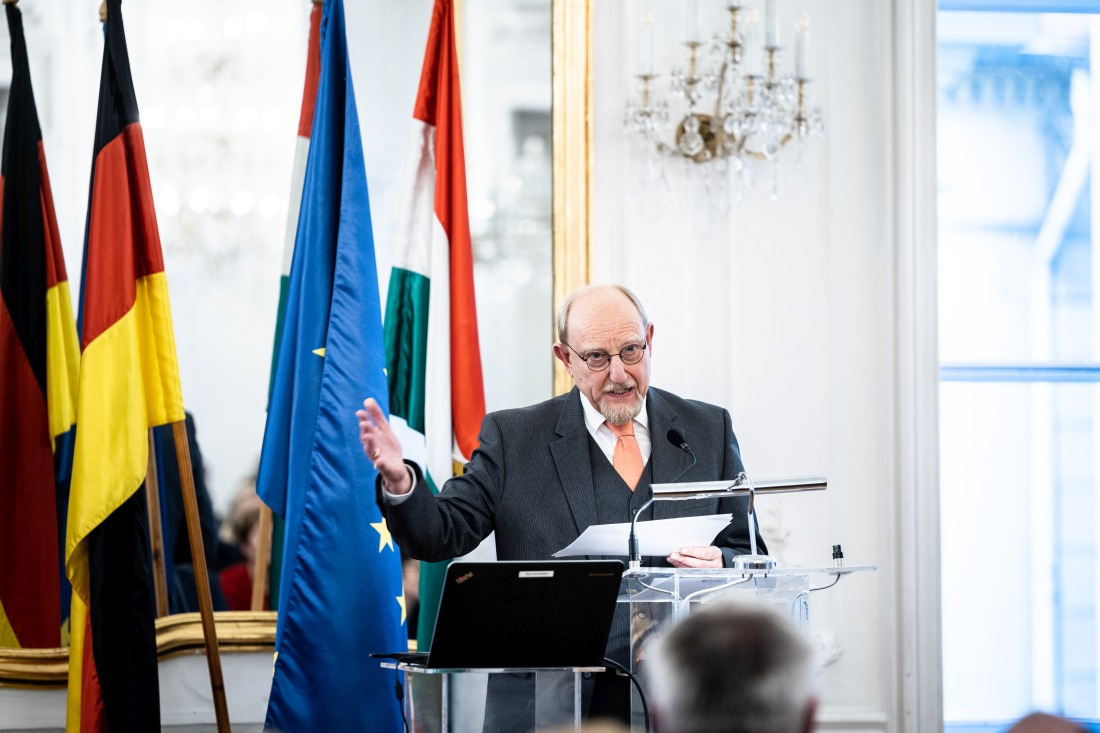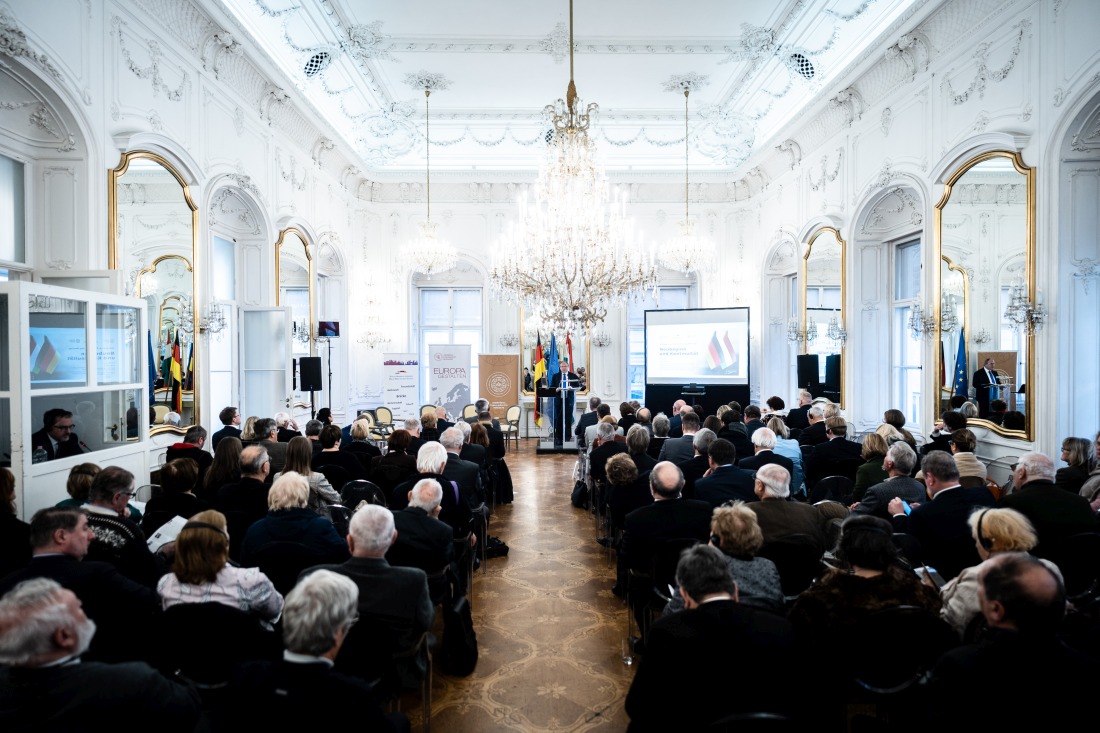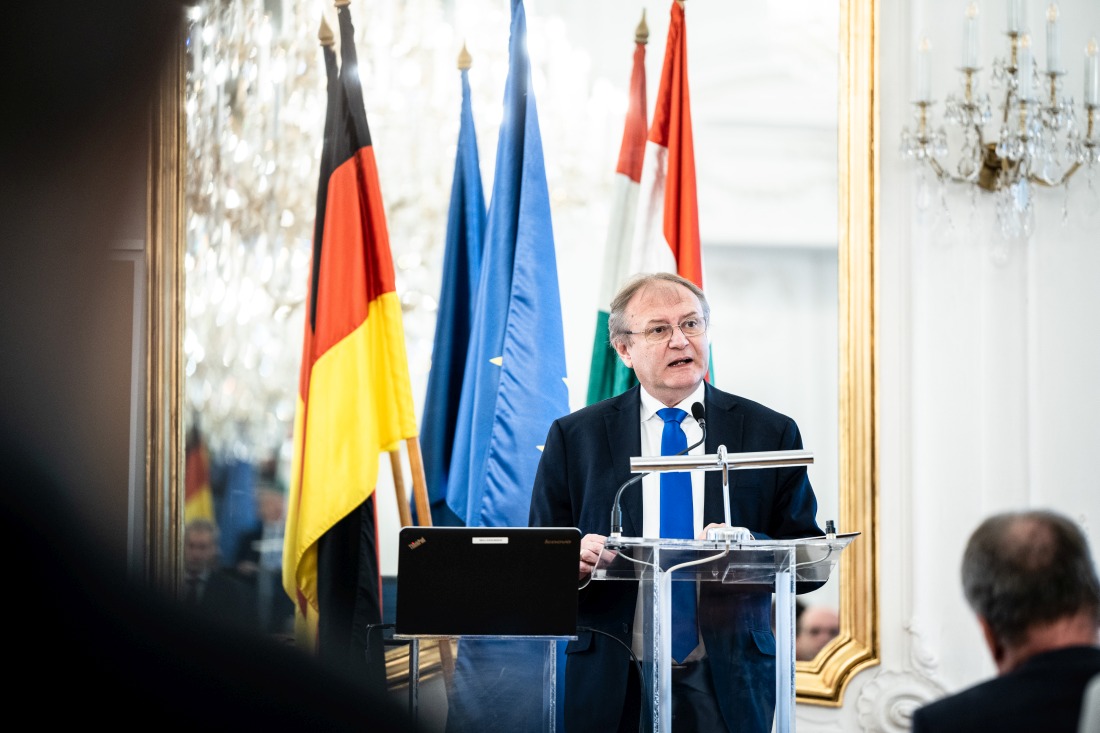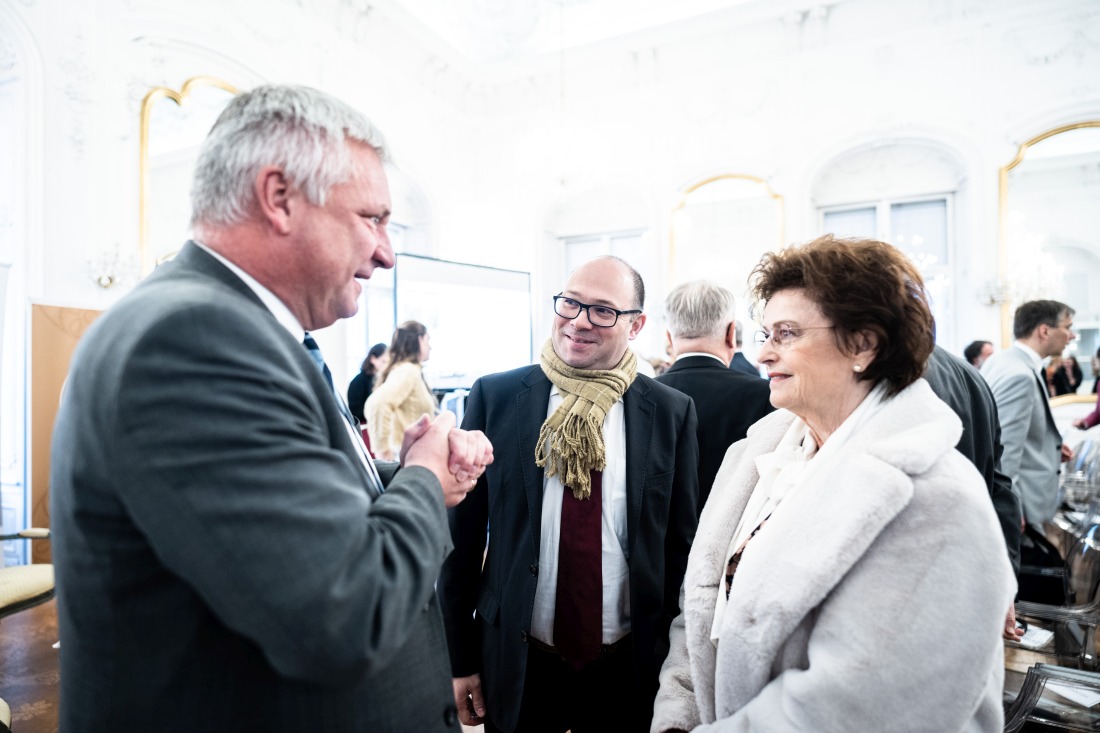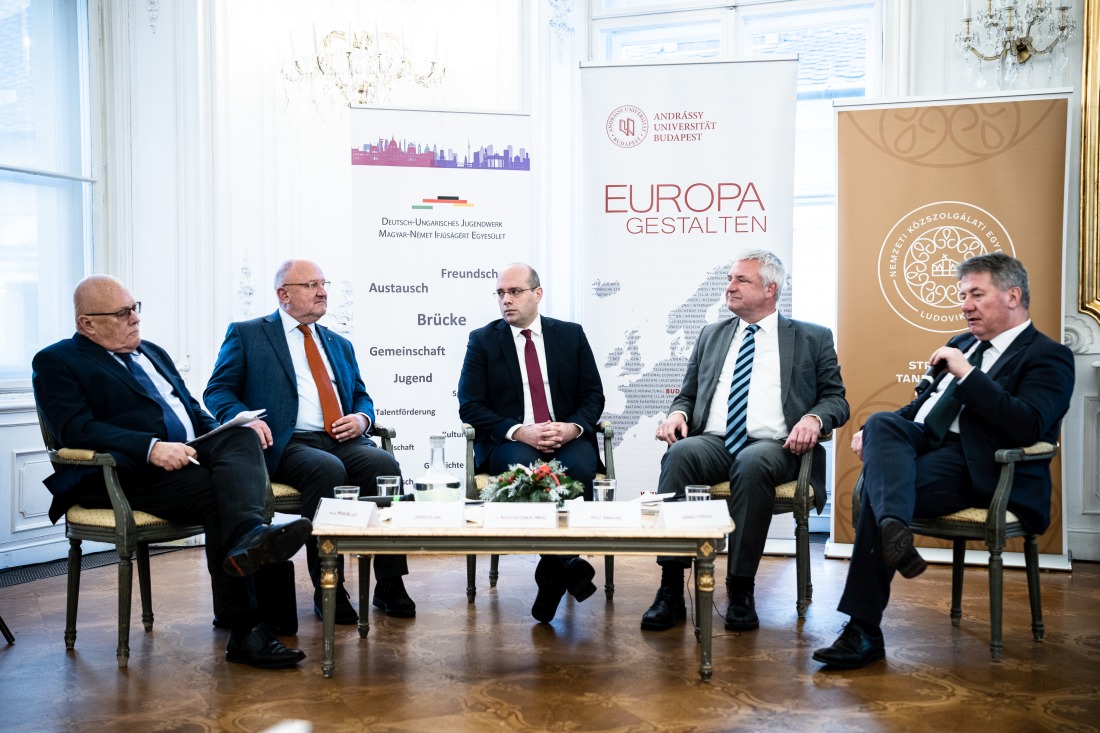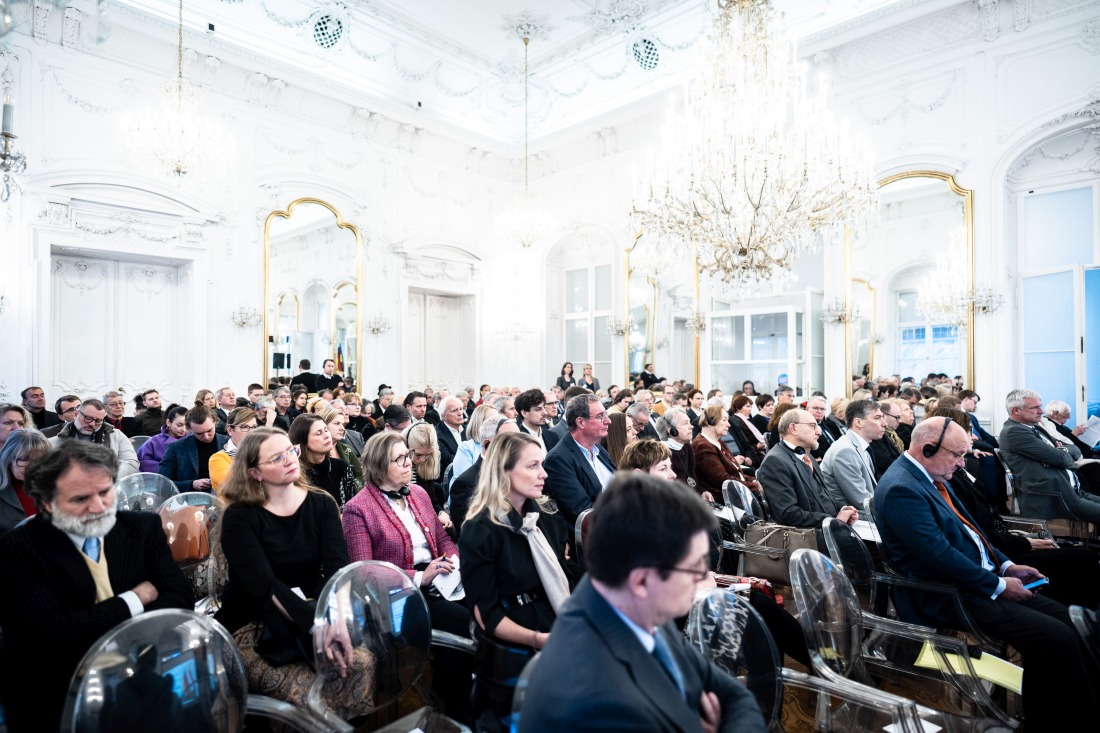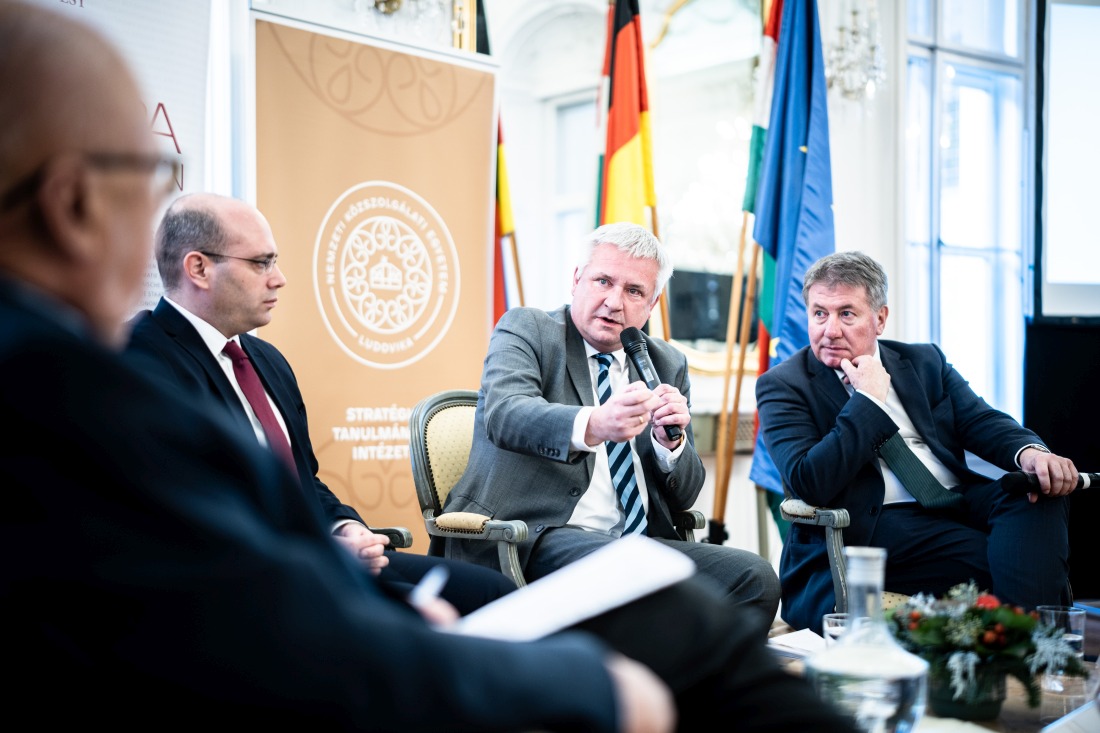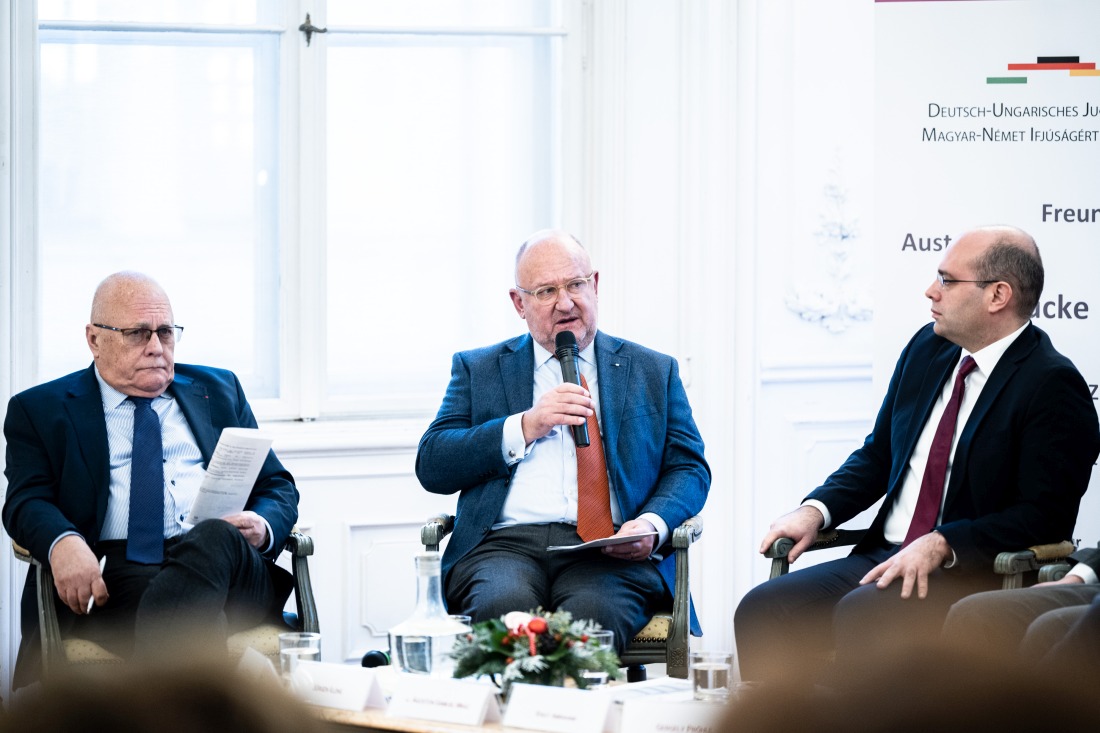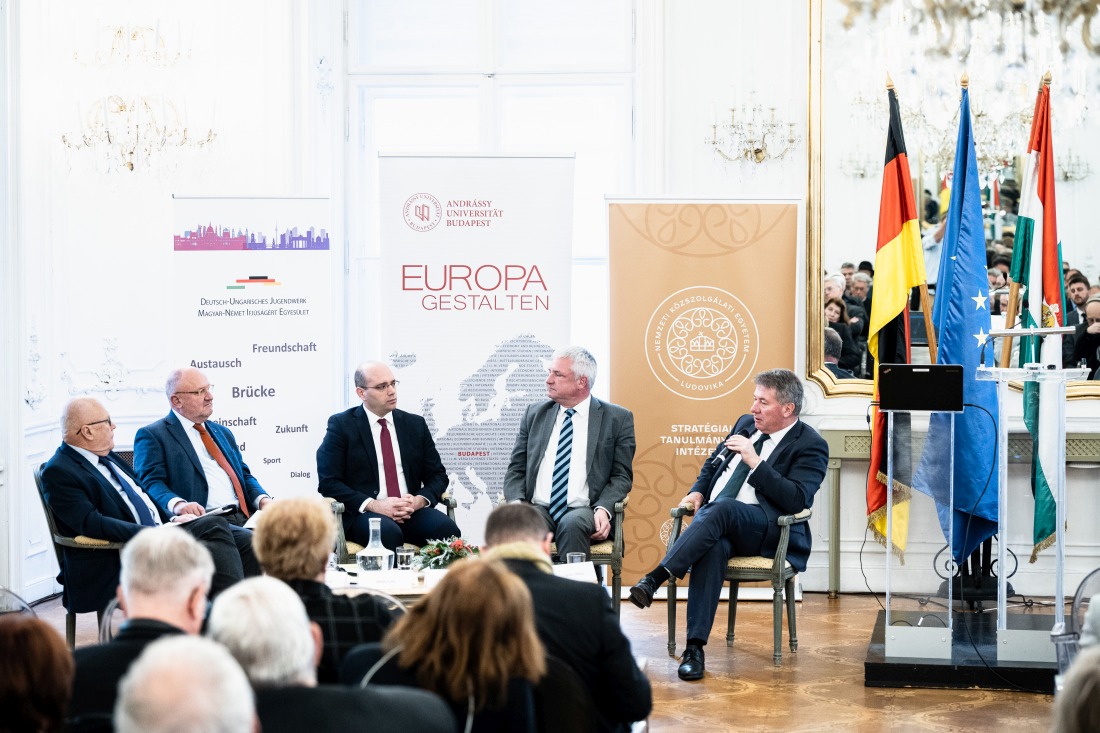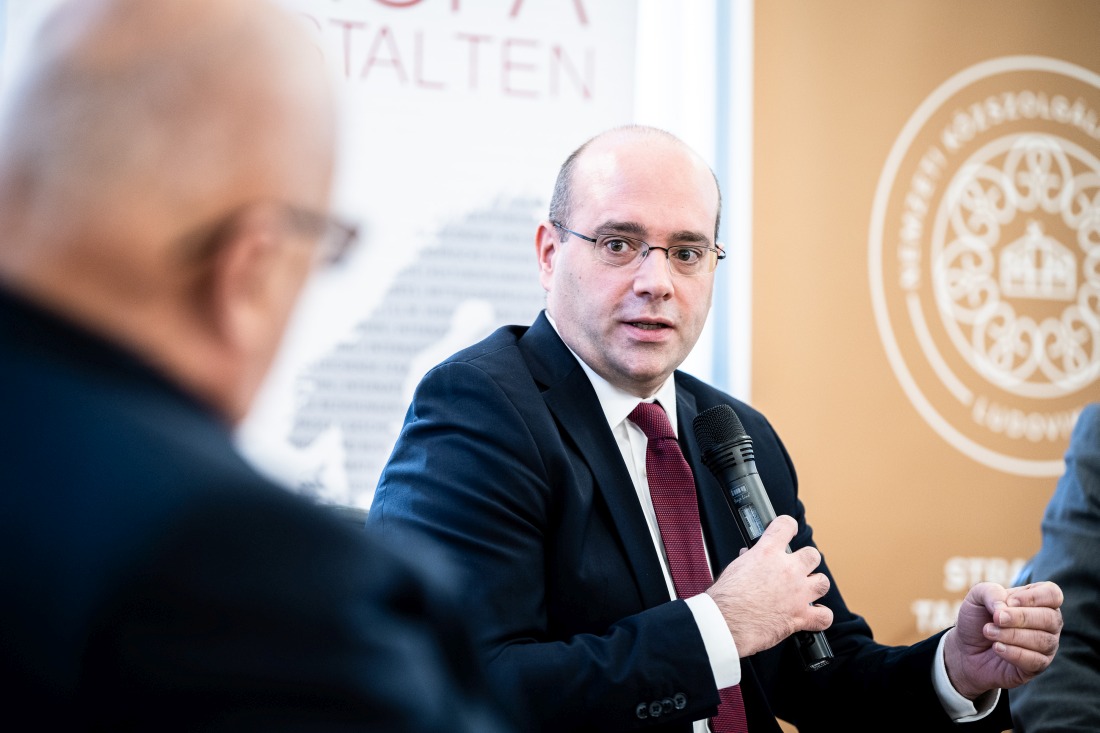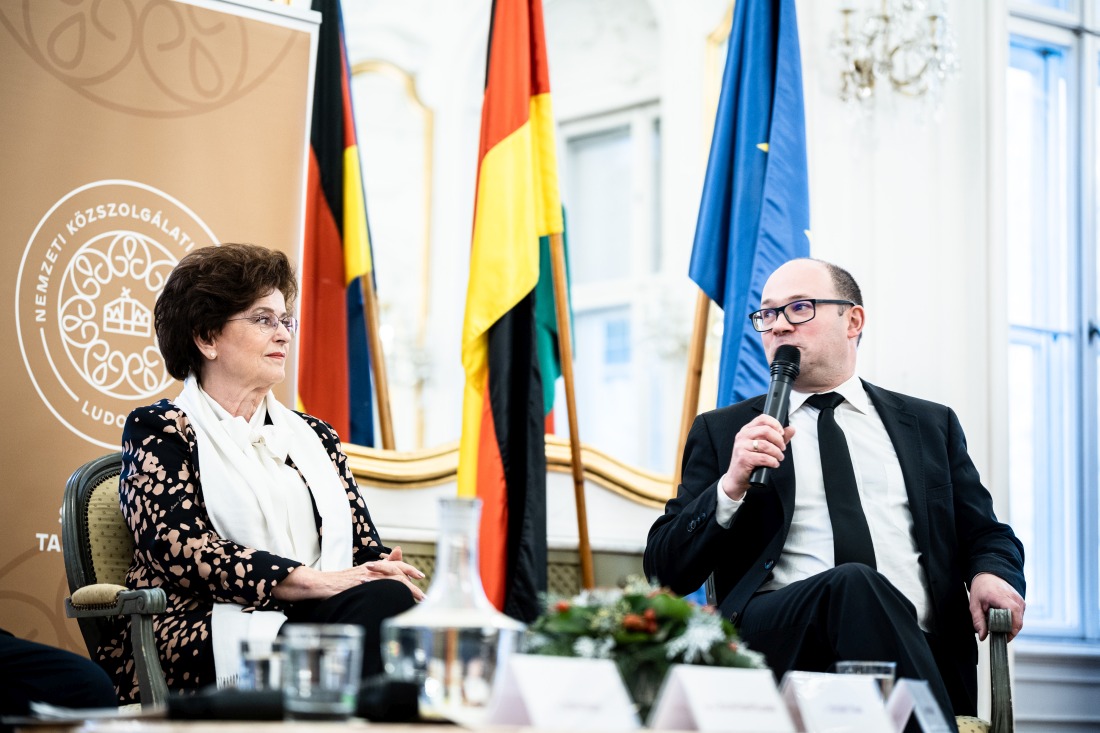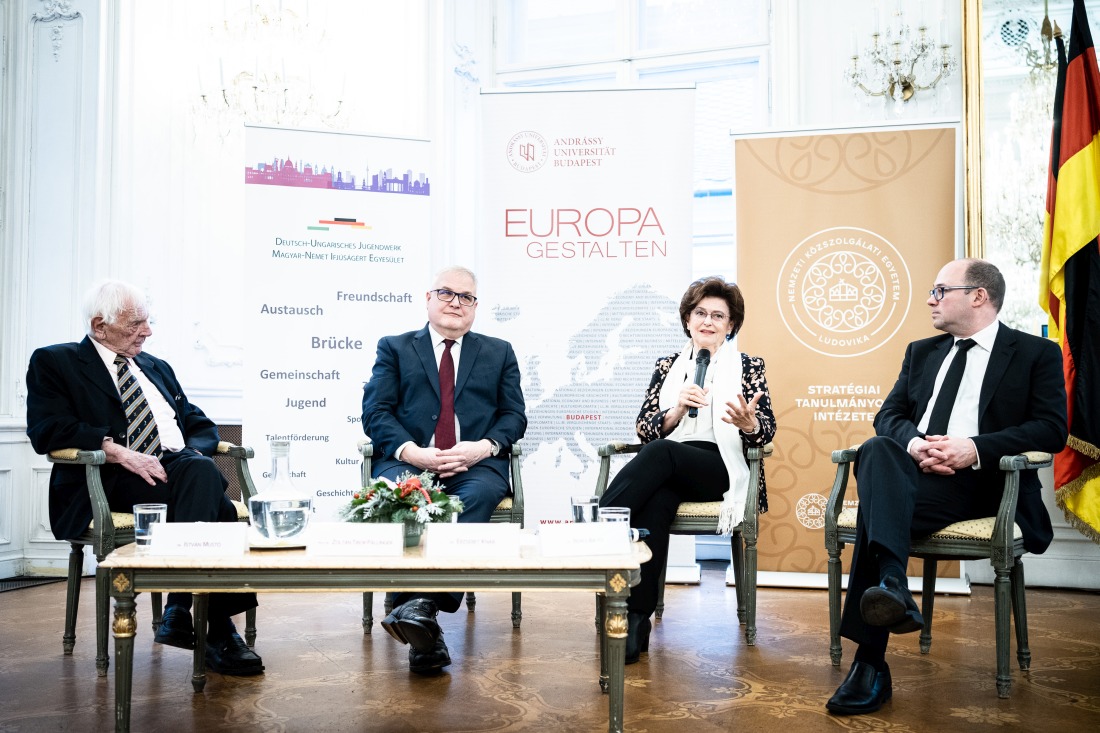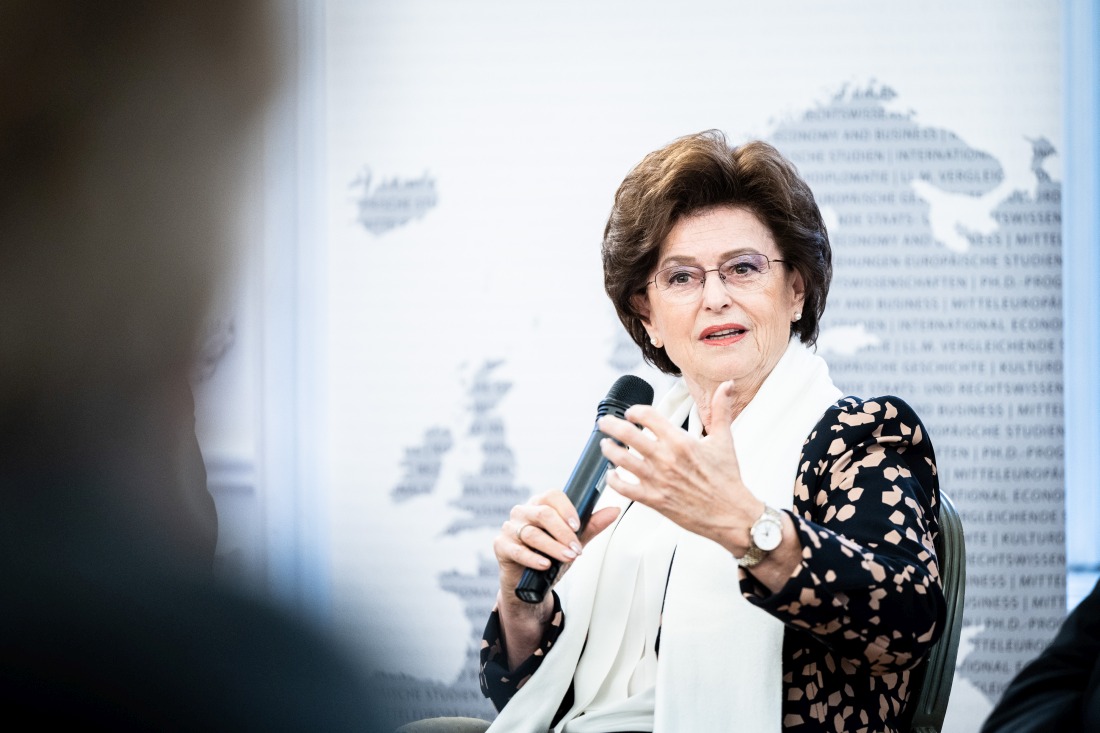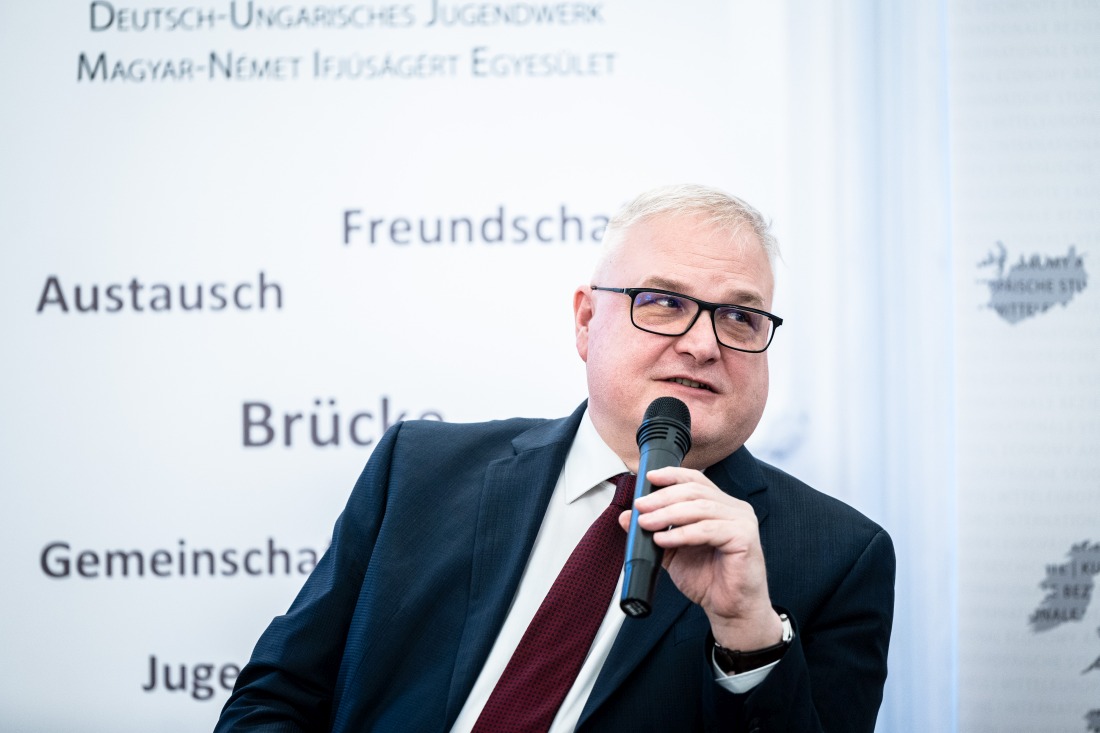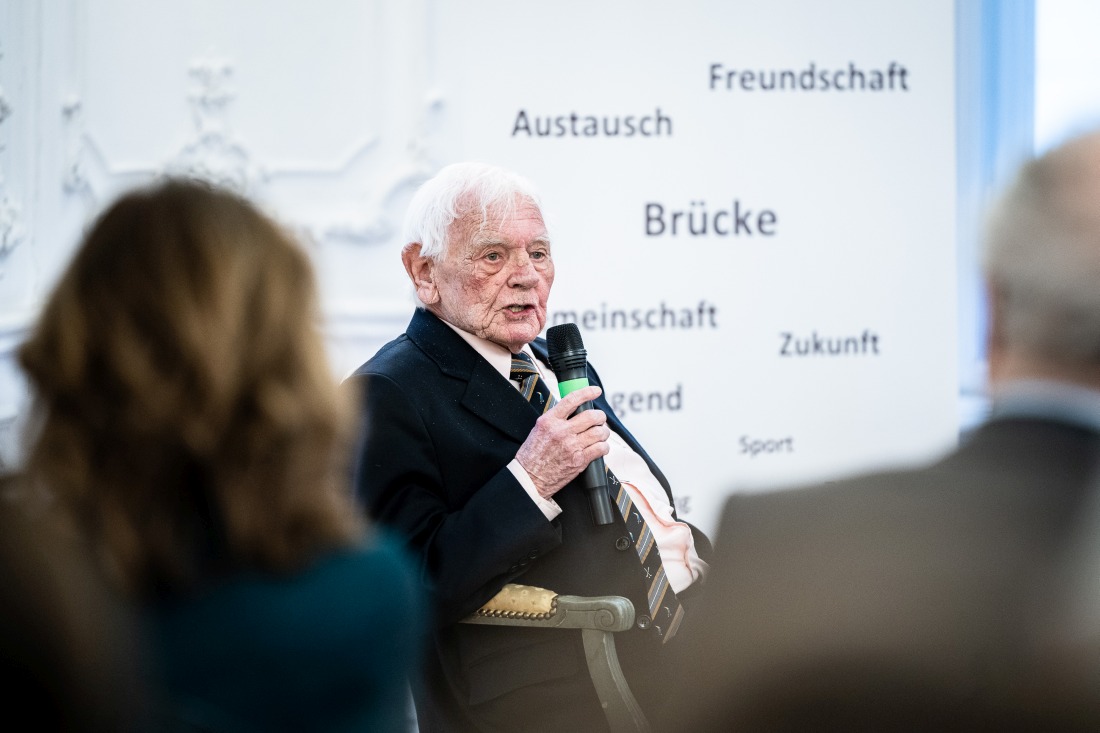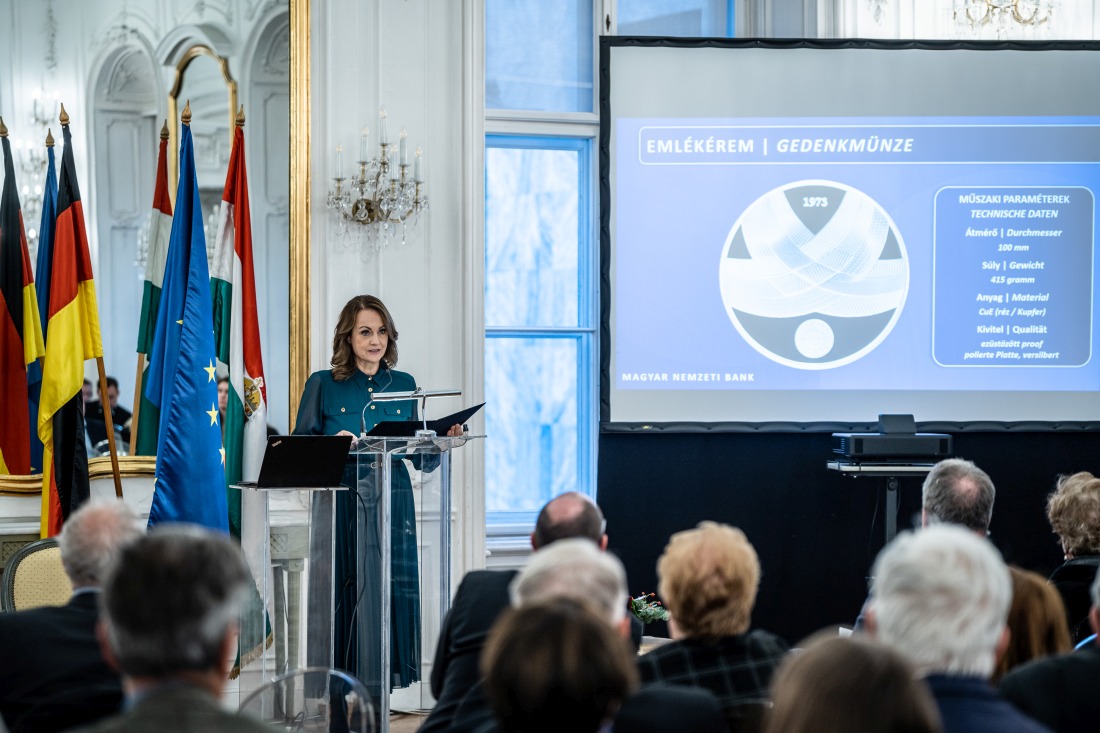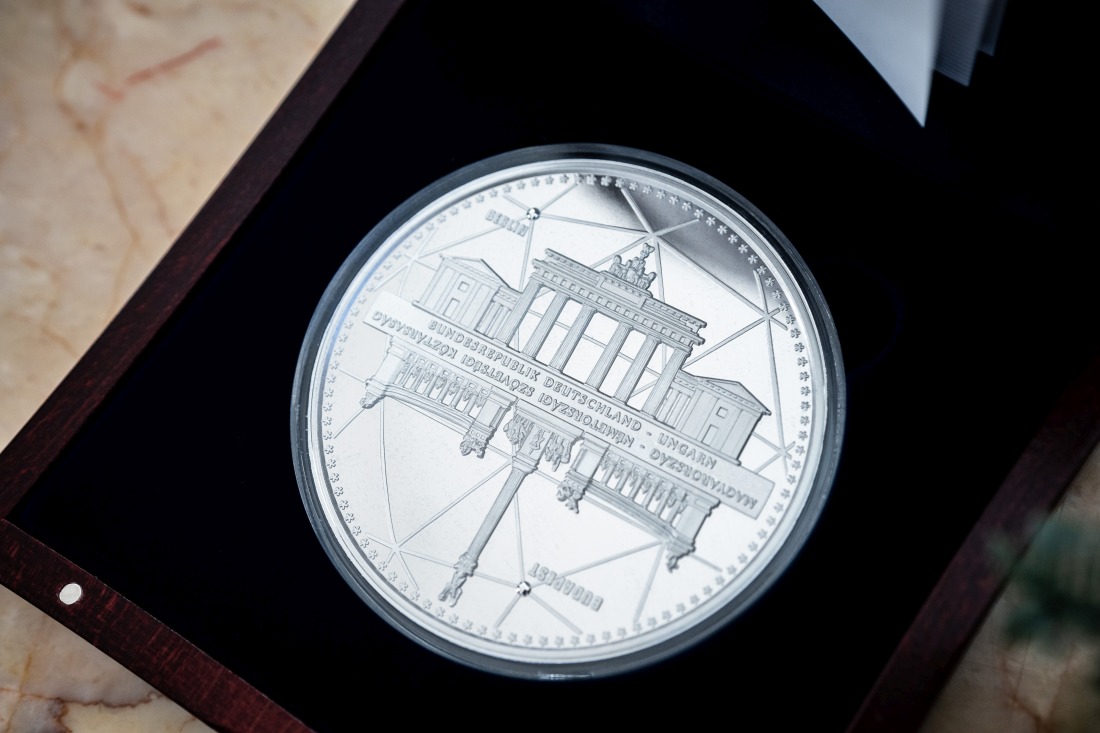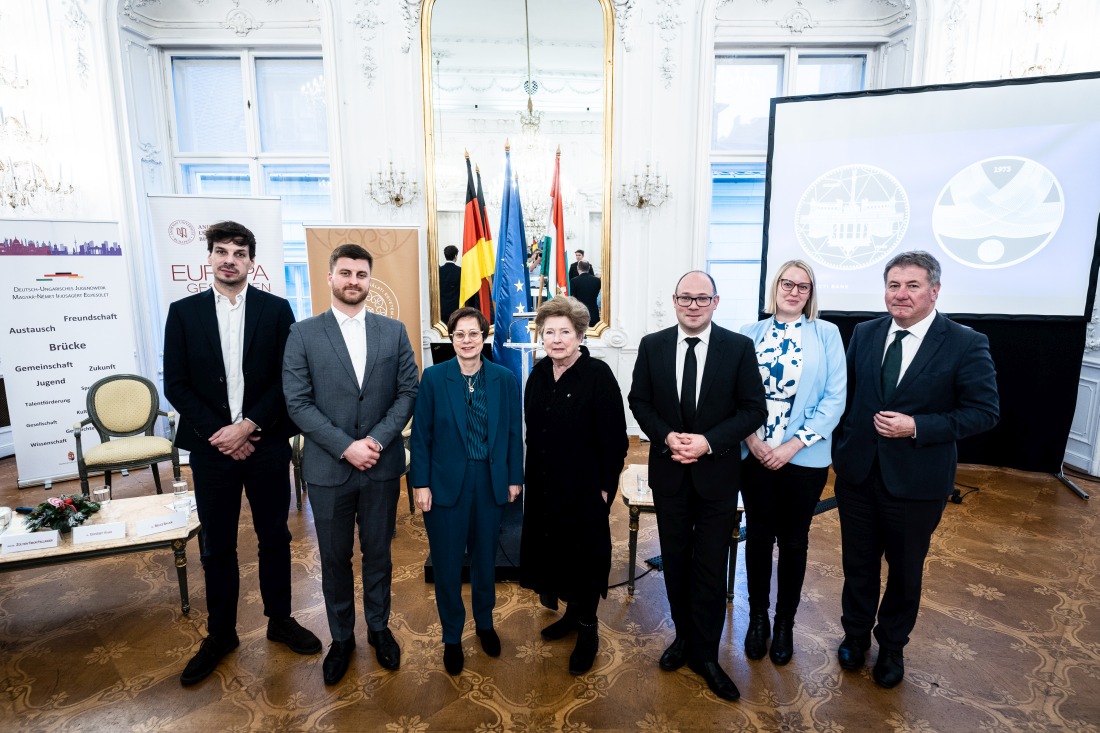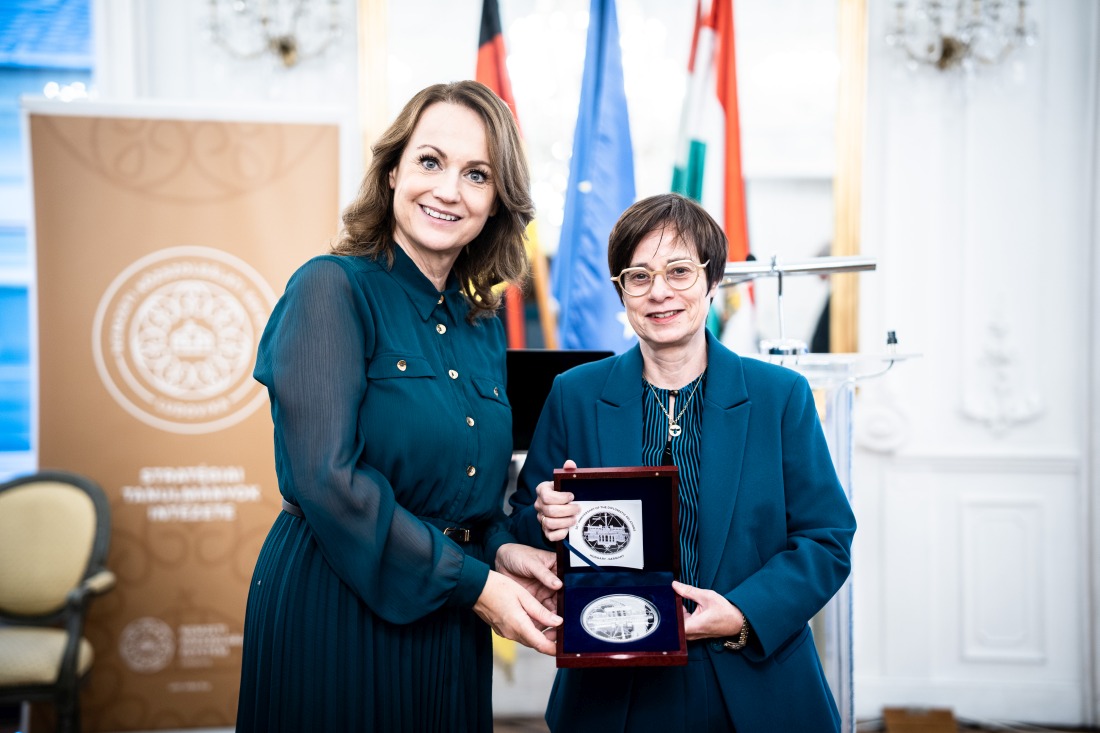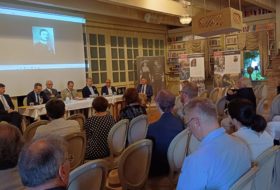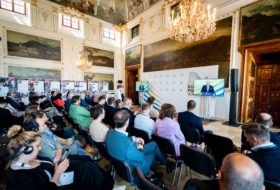In front of a capacity audience, Gergely Prőhle, Chairman of the Board of the Public Foundation for the German Language University Budapest, welcomed the guests in the Mirror Room of the institution. The former Ambassador of Hungary in Berlin recalled the intent behind the publication of the volumes he initiated during his service – Újrakezdések krónikája 1867–2001. Magyar–német diplomáciai kapcsolatok (The Chronicle of New Beginnings 1867–2001. Hungarian-German Diplomatic Relations) (2001), and Újrakezdés és folytonosság (New Beginnings and Continuity) (2002) – and elaborated on the relevance of these notions in the context of the conference. He brought up the Élysée Treaty between France and Germany, which concluded sixty years ago, essentially stating that the parties should consult each other regularly. In light of the postponement by the German side of the meeting of the Hungarian-German Forum in December this year, it would be worth deliberating on the application of this Franco-German practice, making that the key objective of the debate. He highlighted that for a thousand years, the two countries had been in constant dialogue, reflecting on each other’s actions and that this should not be missing from the diplomatic arsenal of the two sides at times when, as is nowadays the case, there is a perceptible distance in political relations.
The economic, cultural and political ties that bind the two nations together are far greater than could be fundamentally affected by transitional periods such as the current one, said Gergely Gulyás, Minister of the Prime Minister’s Office. As he reminded the audience, Hungary has been a priority area for German investors for over three decades, and a quarter of Hungary’s foreign trade is directed towards Germany, even today. Relations are facilitated by the fact that a large German national community resides in the country despite the expulsions following the Second World War. Even by international standards, these people have a unique opportunity to learn in their mother tongue, from pre-school education through public and higher education to doctoral level, and to obtain academic degrees. The friendship treaty signed by Prime Minister Antall József and Chancellor Helmut Kohl after the fall of communism provided the framework for this. Even if the perception of Hungary among Germany’s policymakers has deteriorated in recent years, this is due in no small part to the influence of biased media—although opinion polls show that most Germans still have sympathy for our country, Gergely Gulyás pointed out. The minister claimed there is no reason to worry; maintaining dialogue and the positive examples of centuries can help us overcome the more difficult times.
“Germans and Hungarians are neighbours without a common border”, stated Ursula Seiler-Albring, former German Minister of State for Foreign Affairs. In her speech, the former ambassador to Hungary emphasised the positive qualities preserved in the collective memory of the two nations throughout their long coexistence. However, she warned that this favourable perception also comes with a responsibility and that each generation must do its part to ensure that the sympathy of the past half century, based on shared interests and goals, similar world views or nostalgia, remains a motivating force for the present and the future. Moreover, there is one thing that certainly cannot be allowed between two neighbours – referring back to the opening metaphor at the end of her speech – namely, to stop discussing our mutual concerns.
Péter Györkös, Ambassador of Hungary in Berlin, briefly outlined the cultural topography of the history of German-Hungarian relations and then took stock of the most sensitive issues of the present: the debates on freedom of the press, democracy, political concepts (liberalism-illiberalism, populism, constitutionalism), and the increasingly divisive – and gradually antagonistic – controversies on migration. The diplomat believes that the prevailing situation will not change significantly before the European Parliament elections next summer and that the political agenda of both countries and all EU member states will be redefined in light of the outcome. The timing will be crucial for Hungary, which will hold the presidency of the Council of the European Union in the second half of 2024. Regardless of how the future may unfold, those who care about the continent’s fate should never forget Konrad Adenauer’s words: “Europe shall be the dream of few, the hope of many, and the inevitability of us all.”
The Ambassador of the Federal Republic of Germany focused on the common challenges and the problems that can be solved by joint advocacy, which are numerous in German-Hungarian relations. In addition to bilateral ties, Julia Gross stressed the importance of the role of networks and alliances, through which European involvement can and must be repositioned, for example, in the Russian-Ukrainian war or the conflict that erupted in the Middle East. She underlined that in most cases regarding the principles, there is sympathy in the two countries’ policies. She expressed her hope that in the future, diplomacy will regain its traditional place in building international connections instead or in addition to direct public policy.
In the historical block of the conference, on the Hungarian side, Ádám Masát, historian and diplomat, first reviewed the milestones of the decades between 1973 and 2023. Divided into ten phases, he covered the events that, according to him, began with the announcement of the Social Democrat Willy Brandt’s Ostpolitik and paved the way for meaningful negotiations with the rest of Central Europe by normalising relations between the two German states. One of the results was the German-Hungarian Agreement of 13 December 1973. Heinrich Kreft, Head of Department at the Andrassy University, presented the original document to the audience—along with a typed report on the diplomatic event prepared by the East German secret service. The lesson they drew from their presentations was that, despite the political conflicts of interest, there is plenty of potential for cooperation between the two countries, which would be folly not to exploit.
“Politik braucht Visionen” – Bruno Kreisky was quoted by István Hiller in his introduction to the panel “50 years – political and economic interactions”. The historian and politician analysed the history-shaping relevance of personality, which has been radically transformed since the 1960s and 1970s triggered by the revolutionary impact of mass media: public figures have “moved into” people’s day-to-day lives, and their influence has grown immeasurably. However, for the current generation, the outstanding figures of the era can serve as role models because they championed the ideas they envisioned with talent and commitment. With this consistency and long-term strategic thinking in mind – while preserving all the positive benefits of existing nexuses – we should also approach German-Hungarian relations, the former Minister of Education and Culture suggested.
During the round table discussion in the morning, the participants first considered the background processes of diplomacy in the second half of the 1980s. Péter Balázs, former Minister of Foreign Affairs and EU Commissioner, focused on the endeavours in Hungarian lawmaking that have been pursued since 1987, enabling Hungary’s legislation to become compatible with EU standards. Knut Abraham, Member of the Bundestag, referred to Otto von Habsburg’s efforts to support Hungary through the European Parliament. At the same time, Jürgen Illing, former Managing Director of the German-Hungarian Chamber of Industry and Commerce, and Gergely Prőhle, moderator of the discussion, evoked the figure of Otto Graf von Lambsdorff. As pointed out, Lambsdorff’s conscious Central European policy and his proposals concerning economic matters have left a lasting impression on the developments in Hungary after the regime change.
On social policy issues, several participants suggested that thirty years after the turnaround, it is worth reflecting on how the situation in the concerned countries, as imagined amid the euphoria of the regime changes, compares with the current one arising from the constraints of respective realities. This contemplation may also help us to understand better the ongoing quarrels within the forums of high politics: the viewpoints of the proponents of subsidiarity and centralisation, the disparities between economic and political actors, the characteristics of the rise of populist movements—as the director of the Nézőpont Institute, Ágoston Samuel Mráz, observed.
After lunch, the heads of the Hungarian-German institutions organising the conference discussed responses to questions from Bence Bauer, Director of the Hungarian-German Institute for European Cooperation. Erzsébet Knáb, who traded her managerial position in a German car company for the Deutsch-Ungarisches Jugendwerk (Hungarian-German Youth Society), wishes to help the new generation to learn responsible, solution-oriented thinking and to seek consensus in a world of misunderstandings and misinterpretations. Zoltán Pállinger, Rector of Andrássy University, interpreted the phrase “Europa gestalten” on the new logo of the institution: he considers that the time has come for the graduates, trained as Europe experts, to become the true shapers of the continent’s future, equipped with the skills and academic culture they have acquired here. He expects this from the 200 or so students from 16 countries. István Mustó‘s words rhymed with the theme. While the economist, who was involved in Spain’s accession to the EU as a German specialist, believes that while the political change of regime can be achieved in 2-3 years and the economic change in 5-15 years, the most crucial thing – a change in the mentality of the people involved – can be measured in a matter of a lifetime.
The conference concluded with the unveiling of a commemorative coin in 10 cm diameter made of precious metal, the creation of Zoltán Endrődy, issued by the Hungarian National Bank to mark the anniversary.
Written by Ferenc Vasbányai
Photographs by János Pelikán / Photo editor / AUB
